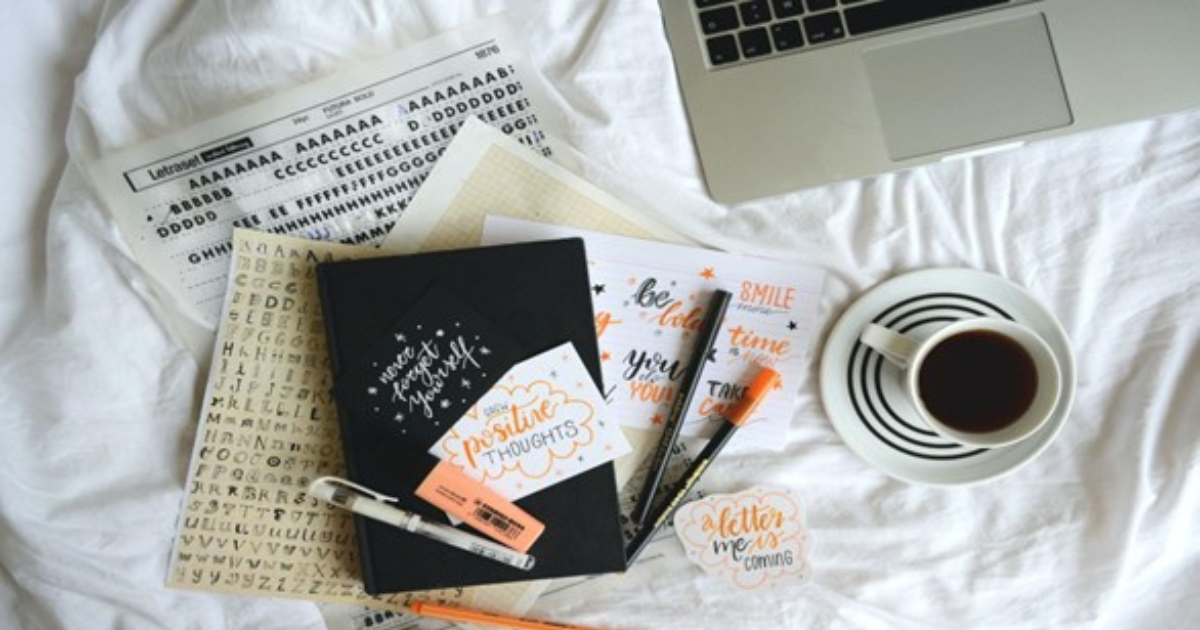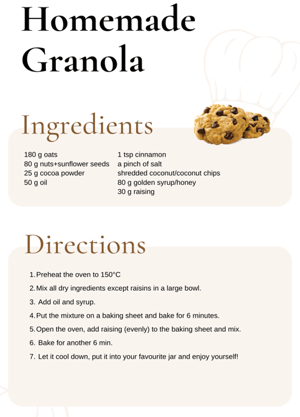Spend a study day with me!
Published: 11 January 2024 | Updated: 11 January 2024 | By: Vladislava, Student Content Creator | 3 min read
Mornings during the exam period are like no other: you wake up with nagging thoughts of spending the whole day hunched over your desk, repeating the same pattern till the last assessment is gone. But should it always stay that way? I'll let you in on a secret: no! You can overcome anxiety and pressure with smart habits that will not only reduce your stress levels throughout the day but also help you stay more productive and get everything done on time. Now I'm going to take you on my learning journey!
The Day Before 🌚
A proper study day starts the day before! Yes, it's scientifically proven that the sleep hormone melatonin increasing during darkness affects the quality of your sleep, giving you energy for the next day and reducing anxiety and negative thoughts. It doesn't matter what you do in the morning if you spend the whole evening staring at a screen and don't fall asleep until after midnight.
So tip #1: Go to bed no later than 11 pm and limit your intake of unnatural light. But if your mind is still wandering, you can try switching off by listening to soothing sounds or meditating with Headspace (where they have a 90-day free trial!).
7:00 a.m. Waking up ☀️
At the beginning of the day, your brain capacity is at its highest and you can handle even the most complex tasks. However, I don't want to be stressed right away, so before I dive into my studies, I take an hour to stretch (Mady Morrison's morning workout only takes 15 minutes and prepares me perfectly for breakfast), and then I have something to activate my brain - usually a yoghurt with homemade granola (see recipe) and finally, I open my planner/laptop and write down my tasks for the day.

8:30 a.m. Study Session #1
After I know exactly what tasks I have for the day, I begin to prioritise. My tactic is to start with the easiest task with the closest deadline. Therefore, I can satisfy my brain with the first accomplishment and move on fairly quickly.
9:30 a.m. Brain Boost Break ☕️
An hour of pure focus must be rewarded with a brain boost. For me, it's either a matcha latte or black tea with milk. Both have high caffeine content, but the effect of matcha (Japanese green tea powder) releases it more slowly compared to coffee, therefore improving cognitive function and making one feel energised longer.
During a break, it's not recommended to get distracted by scrolling through social media (although it's really tempting, I know!). Instead I either look out the window while drinking to relax my eyes or clean my workspace to get some exercise.
10:00 a.m. Study Session #2
There is now a great deal of work to be done. Put aside the most important and difficult part (for me, this is usually the beginning of writing a new paragraph of the essay).
But how to start? Try closing all unnecessary tabs on your laptop, open a Word document with your previous research next to it, count to three, and start immediately. Then don't get distracted until you've written a few sentences. I promise you'll get into the flow and won't be able to stop!
The time will start to pass quickly and the only thing that will remind you to take a needed break will be the alarm on your phone or an app - I use Forest where I can plant a tree every time I'm done studying, and I also love the sound of their alarm.
12:30 p.m. Lunch Break 🥙
Congratulations! We’re halfway through! 
In the middle of the day, it is important to have a good lunch and get ready to go out. For the second half of the day, I prefer to change the location: to either a coffee shop (check out The Best 5 Cafés To Study From) or a library. A nice walk while listening to podcasts or songs will give me the right motivation to continue learning and make it easier to bring my attention back when it comes to studying.
2 p.m. Study Session #3
It depends on the person (and the deadlines), but realistically I know that I won't achieve the same deep concentration during the afternoon activities as in the morning. That's why I can get together with friends for this study session and do the Pomodoro technique (25-30 min work, 5 min break) or flashcards.
Snack Time 🥪 (during the Study Session #3)
During this period, I usually snack whenever I feel hungry (I can't work on an empty stomach), and hydrate with a cup of tea and water (if you're at the library, there are hot/cold water stations, so be sure to bring your own bags and mug so you have a free drink).
5 p.m. Meaningful Break
This is my time for rest and reward. Playing sports, reading a little, going for a walk, paying attention to the details around me - these activities always energise me, so I put them on my list even with the time constraints of exam season.
7 p.m. Mini Study Session #4
Absorbing new information in the evening may help you remember it better, but it won't help you prepare for rest. Starting at 7 p.m., I only go over material that I need to review or rewrite parts of an essay. When you are starting something new, your brain goes into power mode and switching it off can be quite difficult.
9 p.m./10 p.m. Full Recharge Time ⚡️
Spending the day with constant concentration, thoughts of exams and time pressure should become a thing of the past when you are about to go to bed. I turn off my laptop and breathe deeply to return to the present. These moments before a night's rest should be the most peaceful. So call someone who can cheer you up, read an adventure book (maybe The Fourth Wing by Rebecca Yarros?) or tell yourself how much you accomplished that day.
And if something goes wrong today, you can change everything tomorrow! Because every day gives us a new opportunity to rise, learn and improve!

By Vladislava, second-year International Business Management student and Student Content Creator